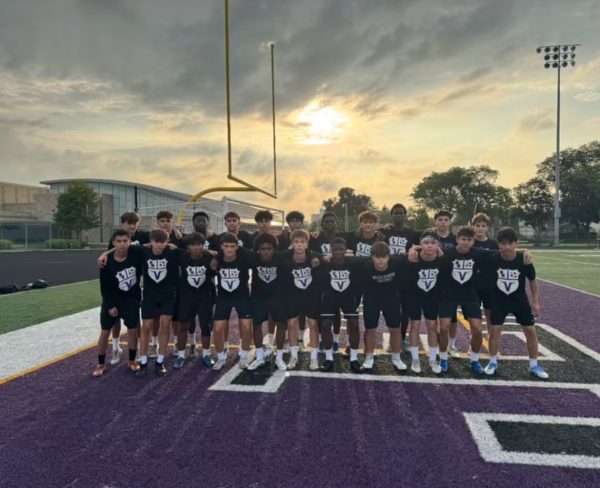2022 Qatar World Cup stirs up controversy for migrant workers

Members of Building and Wood Workers’ International (BWI) and Swiss Unia unions hold a red cards reading “A red card for FIFA, no World Cup without labour rights” and a banner reading “No World Cup in Qatar Workers Rights!” during a demonstration outside the headquarters of the world’s football governing body FIFA in Zurich on October 3, 2013.
The World Cup beginning in November in Qatar is under fire due to their treatment of migrant workers and the rules in regulations upheld within the borders of the country.
While soccer fans throughout the world usually look forward to one of the most watched events in sports, many are unsure how to feel about 2022’s World Cup in Qatar.
For some context, the World Cup occurs once every 4 years and is a tournament consisting of 32 national teams who had to fight through massive qualifiers in order to win their coveted spot.
This time around, things are different. For starters, over 6,500 migrant workers from places such as India, Pakistan, and Nepal have died in Qatar since they earned the right to host the World Cup 12 years ago in 2010, according to The Guardian.
While Qatar claims the deaths are due to natural causes such as acute heart disease, many speculate this is far from the truth. In an interview with The Guardian in 2021, Barun Ghimire, a human rights lawyer, said that migrant workers will continue to die and suffer if the Qatari government does nothing to address the situation. The situation he is referring to is the past and present severe mistreatment and neglect of the workers building the stadiums.
Many of the workers will find themselves without their promised paycheck after multiple weeks, and are forced to take out high amounts in loans in order to feed their families and pay for their rent. To make things worse, when workers attempt to submit their case to the newly created labor dispute committee, their issues often aren’t heard for months on end.
Even when cases are heard and confirmed, the committee may not be able to provide the missing wages, leaving many having wasted their time and effort and still moneyless.
In an interview with amnesty.org, one worker and father named Daniel (full name not released) complained that “We don’t know what to do. We don’t have residence permits, we are here illegally. Our employer can run away at any time, he is not a Qatari national. We are heading to seven months without salary. Me, personally, I am okay, but what about my kids? Now my eldest child is at home, he cannot go to school.”
According to Rameshwar Nepal, a labor migration researcher and executive director at Equidem Research Nepal (a human rights organization), “Young and healthy Nepalis dying every year cannot be seen as natural. These workers are dying in road accidents, workplace accidents, of suicide, from falling from heights and even sudden cardiac arrest, which is related to working in the heat outside and sleeping in air-conditioned rooms,” Nepal said.
What makes things worse for migrant workers in Qatar is the awful working conditions they describe. With many of them there illegally, they find themselves stuck as they are unable to present their case to authorities. An unnamed worker, when interviewed by BBC News, explained that “Qatar has a labour office, but if you report your company, they will definitely send you back to your country. So everyone is too scared to report any problems.”
The management on the sites took advantage of their situations, and knowingly severely underpaid them. In an interview with BBC News, Stephen Ellis, an experienced man in the construction industry, described the conditions as “the worst conditions I’ve ever seen on any site” and quit after a mere two weeks.
He also described the wage gap between the other British workers and the migrant Indian workers there, who were the vast majority. Although the site was run completely by Indians, they treated the Indians even worse than the other workers. He said, “We were paid a lot more than the Indian workers – they were on about $50 a week, and we were on closer to $33 an hour – but we were still ripped off because we left early.”







Cynthia Fey • Oct 7, 2022 at 9:31 am
Thank you so much for bringing attention to this issue! I had no idea before I read your article that so many migrant workers were being exploited, not being paid, and dying from horrific work conditions.